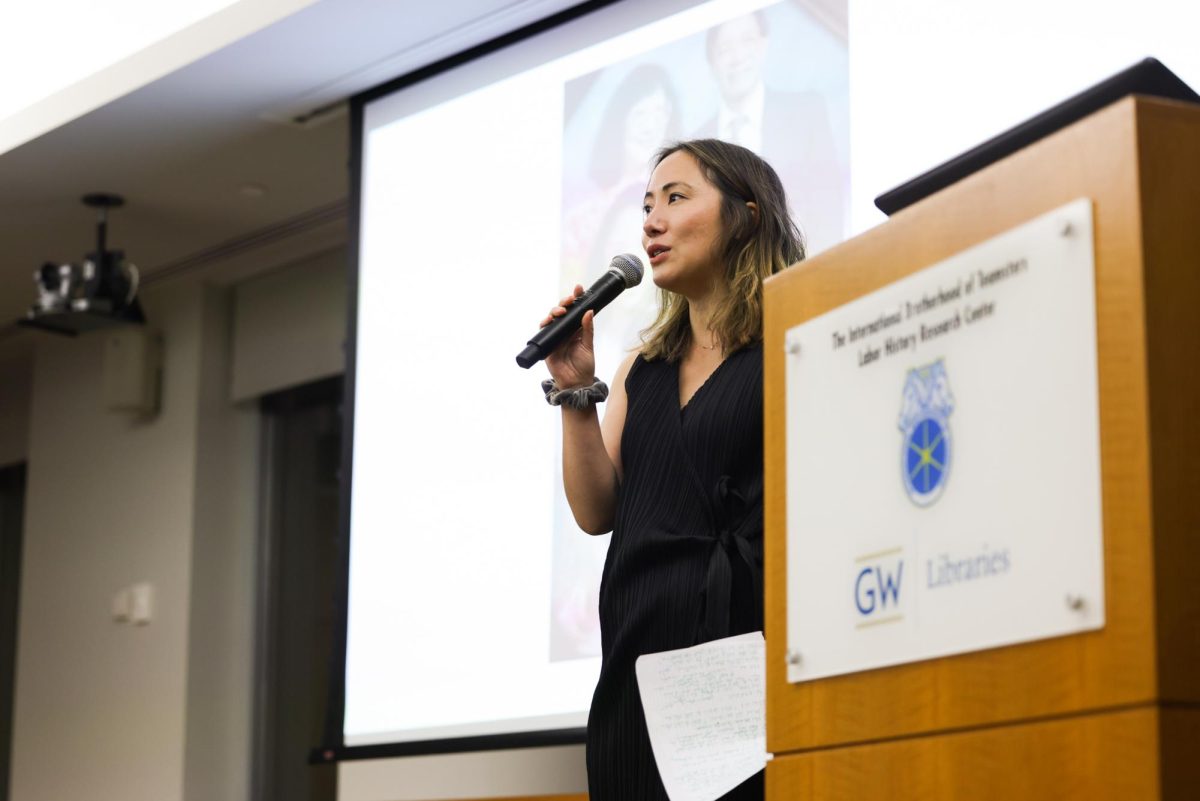You are what you eat, or in the case of GW students, you are what you can buy with your GWorld.
Junior Melissa Eddison, current president of the Food Justice Alliance, wants students to get better acquainted with their food, in hopes of ultimately making healthier and more informed choices.
Eddison is the recipient of the first Steven and Diane Robinson Knapp Fellowship for Entrepreneurial Service-Learning award. Her award-winning plan involves developing an on-campus, nonprofit, student-run co-op café that will sell locally grown foods in a sustainable manner.
Amy Cohen, executive director of the Center for Civic Engagement and Public Service at GW sees the project’s goal of bringing access to healthy foods and sustainable agriculture as an innovative solution to the current void on campus.
The co-op model allows for students to have a voice in the food choices offered and business decisions made.
“Your patrons are your owners and they get to decide what goes into the store and what the store sells because they are the owners and the workers,” Eddison said.
Instead of receiving a paycheck, volunteers are paid in food.
“Anyone from the community can go and volunteer there for an hour and get paid in food,” Eddison said.
Since the Food Justice Alliance’s founding in 2008, the group’s projects have included cultivating a community garden, which donates 80 percent of their crops to Miriam’s Kitchen, has brought six colonies of bees to the Mount Vernon campus and teaches people about the journey of food, from seed to plate.
“The garden is all about cultivating food and teaching people that food comes from the dirt…it doesn’t come from the grocery store or J Street or Potbelly’s,” Eddison said. “It has a real origin and the closer you can get to the food, the more you can value it and the better it will taste on an emotional level if you know where it’s coming from.”
Community garden manager Erin McCluskey has been doing research on students’ attitudes toward food options on campus and cites the lack of access to healthy alternatives as a major student concern.
“People don’t think about the cheeseburger they get from Wendy’s, or wherever, and that’s a problem because it’s a huge system behind that that’s not good for the environment or for people in general,” McCluskey said.
Eddison and McCluskey, along with Food Justice Alliance Vice President Ellie Smith, attended a retreat in January, sponsored by the West Coast-based Cooperative Food Empowerment Directive that gave them the tools to promote food sovereignty.
After coming back from the retreat, Eddison describes feeling empowered.
Despite realizing they needed around $150,000 to open the café, she still thought it was something they could absolutely accomplish.
Having experience working with the GW administration, especially with registered dietician Diane Knapp, and as the voice of the student body on the Urban Food Task Force, Eddison successfully applied for the fellowship.
The $10,000 prize will be used to fund the writing of grants, incorporating as a non-profit and furthering development efforts.
The food-loving trio also hopes to make the café a community space for people to become more educated about food sustainability and also to display student artwork, host events and speakers, showcase music and create a unifying meeting place they feel the campus currently lacks.
Eddison sees GW students as especially important to the future understanding of food growth, distribution and consumption.
“Half the people here are going to turn into the policy makers of our country and it’s extremely important to me that they have a healthy understanding of what sustainable food means so that our food system can move in a different direction for the next generation,” Eddison said.
This article was updated May 9, 2011 to reflect the following:
That Hatchet incorrectly reported the number of bee colonies on the Mount Vernon Campus. We regret this error.





